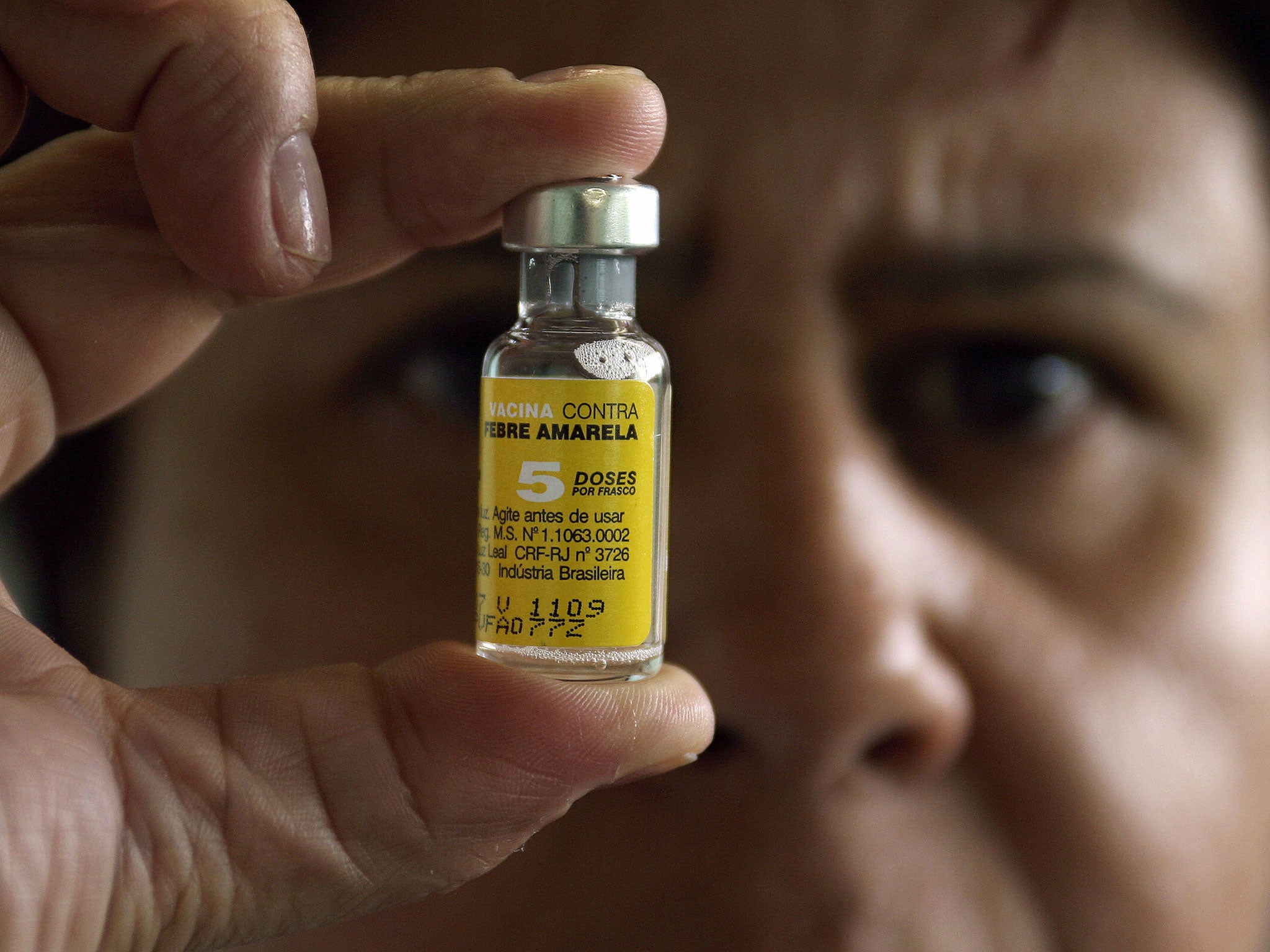Shortage of yellow fever vaccine threatens travel to the tropics - including Brazil

British travellers heading for the tropics could be halted by a worldwide shortage of vaccine against yellow fever, a disease found in destinations including Brazil and Kenya.
The manufacturer of yellow-fever vaccine, Sanofi Pasteur MSD, began experiencing production problems last summer. It is currently limiting quantities that medical professionals can order. According to the US Centers [correct SC] for Disease Control, “These ordering limits are expected to be in place until April.”
The mosquito-borne virus is prevalent in parts of sub-Saharan Africa and Latin America. Yellow fever infects around 200,000 people worldwide each year. Victims can start to recover after a few days of flu-like symptoms, but around one in four relapses with potentially fatal consequences. Annually, about 30,000 people die of the disease.
Some nations with a risk of yellow-fever transmission will admit the unprotected traveller without formality, putting him or her at significant risk.
Dr Jane Wilson-Howarth, medical director of the Cambridge-based Travel Clinic, said: “If I fly into a yellow-fever area, the authorities may not care whether or not I have a vaccination certificate because I won’t likely import the disease and cause an outbreak. However, I might get the disease and die.”
Some countries, such as Ghana, demand a vaccination certificate from every visitor. Others, including Guyana, ask for evidence of protection only from travellers arriving from a yellow-fever area.
In a bid to protect their populations, some governments even go so far as to conduct wholesale vaccination of travellers who cannot produce a yellow-fever certificate. Dr Wilson-Howarth said: “We know of vaccinators boarding buses in South America and jabbing everyone – except tourists who can wave their certificates.”
In the UK, the key shortage is of single-dose vaccinations. Ten-dose vials are more readily available, but because of the nature of the vaccine they must be used within six hours of opening. Accordingly, a number of travel-medicine specialists are offering the jab only by appointment, when a batch of 10 prospective travellers can be vaccinated in a single sitting. Nomad Travel Clinics is one such provider.
Nomad's chief executive, Paul Goodyer, warned that demand for the vaccine is likely to rise: “The large number of people planning to travel to yellow fever areas this summer is a concern. The sensible thing is to get covered now, just in case the shortage gets worse.”
Some travellers are being advised to consider changing their destination rather than risk contracting the potentially fatal disease.
Dr Wilson-Howarth said: “If people are yet to make firm travel plans and find it difficult to get to designated yellow-fever days, we may suggest looking at destinations free of the disease. For example, Cape Verde is safer than mainland Africa, and the whole of Asia is yellow-fever free”.
Subscribe to Independent Premium to bookmark this article
Want to bookmark your favourite articles and stories to read or reference later? Start your Independent Premium subscription today.

Join our commenting forum
Join thought-provoking conversations, follow other Independent readers and see their replies